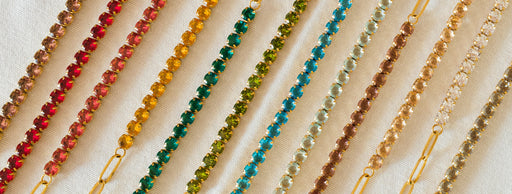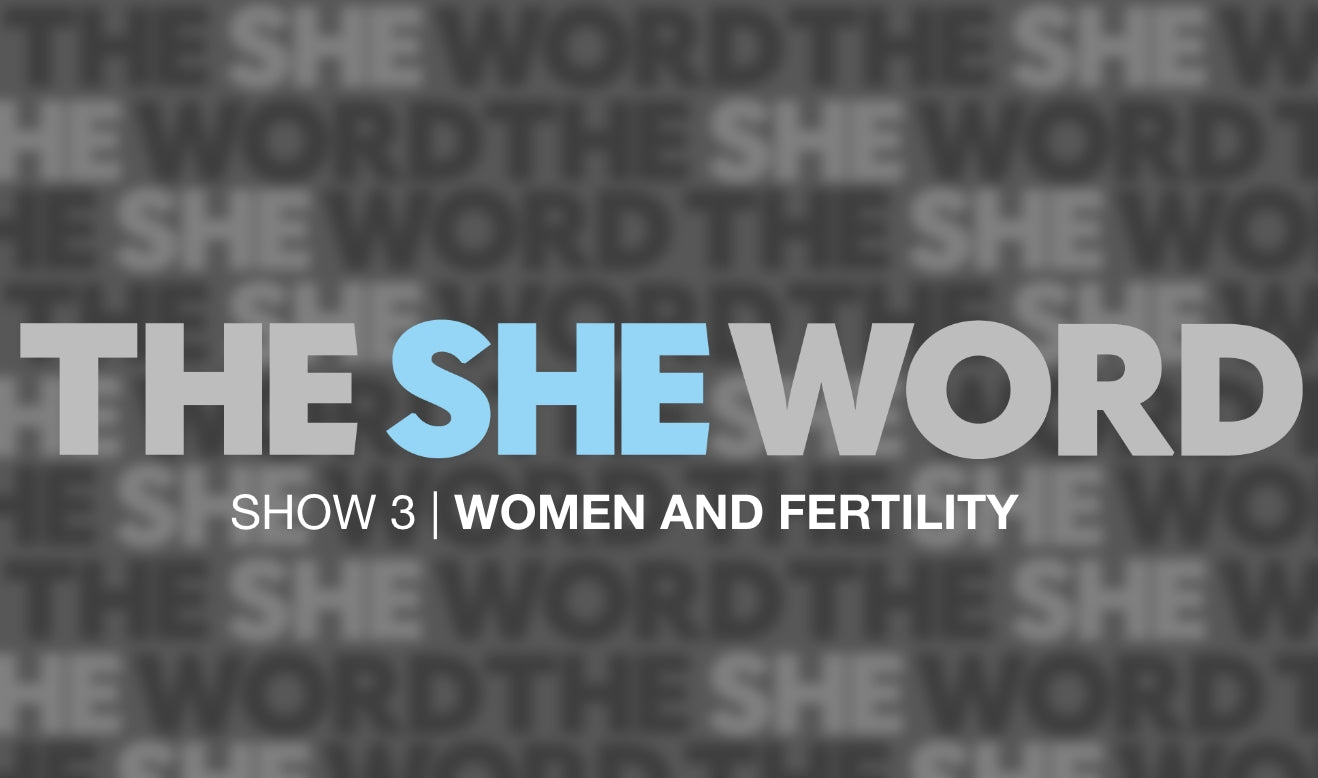In today’s episode of the SHE Word, we’re tackling the topic of fertility, an issue that many women take for granted. For this important conversation, Trudy Kerry is joined by Maxine Attard, Karen Schranz, and Dr Elena Zarb.
Trudy Kerr chose a very emotive topic for the second SHE Word episode. However, it’s a well-needed conversation that is rarely discussed but really should be! Trudy, together with her three guests, Maxine Attard, Karen Schranz and Dr Elena Zarb, discuss fertility issues. Maxine is the co-founder of Jays of Sunshine, but she is also a woman who has touched thousands of women when she shared her story of miscarriage. Karen also shared her journey of fertility and spoke out to many women across Malta. Dr Elena is a pharmacist who is well-educated about fertility, and she is also a mother.
Every woman, at some point in their life, thinks about becoming a mother. For Karen, becoming a mother was her main objective in life.
‘I think growing up as a woman, your expectation in life will include having your own family, a career and a partner to share your life with. One of my main goals in life was to become a mother. My husband and I started trying straight away. It was not an easy journey. We adopted after 10 years, and we finally conceived after 15 years. We had rounds of fertility treatments and I was told I had unexplained infertility, which later on, we realised it can never be the case. David and I were too compatible and my body was not recognising his sperm as a foreign body. Within a few days of conception, I was miscarrying every time. I went through numerous tests and injections and when my body was finally ready, I did IVF, and my chances were very low because of my age (less than 6%). I was 42 when I had Lily and we started trying when I was 26’.
Maxine shared a similar ideology when she was younger. As a little girl, she always knew she wanted to have children. However, she stresses the importance of raising awareness around fertility because becoming a mother might not happen for everyone. In fact, Trudy shares some statistics that 1 in 5 women have issues with fertility and 1 in 4 women have issues with miscarriage. The latter is what Maxine has experienced recently.
‘We got pregnant 3-4 months after we got married. Never for a second did I think something could go wrong. That is up until my first scan. I was very anxious on the day; I had a dreading feeling rather than feeling the excitement. It’s like I knew something bad was going to happen. However, the ultrasound showed that everything was fine, and I had the go-ahead to travel and continue going to the gym. The second scan happened after 12 weeks and when the ultrasound showed up on the screen, I realised that the embryo did not grow. The room grew tense, and I was told that there was no heartbeat either. I just wanted to go home and crawl into my bed. We had already planned so much. I felt like I had become a mother straight away. This was a new level of heartbreak that we both went through. Now, I can happily say I’m pregnant again. I feel very blessed to be pregnant so soon. However, it’s a whole different ball game now. It’s a very scary experience after a miscarriage. I can’t generalise but, in my case, I’m very anxious and seeking help for my anxiety. Every scan is like a marathon. The idea I had as a child about pregnancy is very different to what really happened’.
Considering that it is incredibly common to have fertility challenges, why don’t we talk about it?
‘There is a lot of importance on preventing pregnancy,’ claims Karen, ‘that then when you do start trying, you assume that it’s going to happen instantly. Couples need to know that there is a possibility that it might not happen, and that it won’t be easy. I found the first 2-3 years as being the hardest. It was constantly a cycle of hope and despair. The pain is still stored in my body and when I do give it a voice, I feel the tears come very quickly. Women should know that it doesn’t necessarily happen just like that when you have unprotected sex’.
Maxine highly agrees with Karen. ‘We need to teach and make teens aware when they are still at school. Infertility and miscarriages can be a part of this experience. We need to make them aware not to take their fertility for granted. Education might reduce the level of devastation if this does happen to them when they’re older. If there’s a slight awareness, maybe we won’t feel so alone’.
Every woman, at some point in their life, is going to think about whether she wants to have children. Yet, it’s still one of the conversations we don’t have. Trudy expresses that it must be incredibly lonely to lose a child. Is this something that women can talk to one another about?
‘It is the most isolating experience I’ve ever lived through,’ claims Karen. ‘Everyone is going to try and make you feel better. They will say well-meaning stuff, but that stuff won’t matter to you. All that matters and all that will make you feel better is if you become pregnant. You start feeling like a burden, you don’t want people to feel sorry for you or pity you. My husband and I stopped hanging around with anyone who had kids. It was painful. I didn’t feel ashamed, I’m an open person but I used to feel that I was moaning or grumbling all the time. We did have blessings because we had a 10-year honeymoon. But the pain was a big part of us too’.
Maxine feels lucky that she had very close friends and family. However, she still didn’t want to speak about it. ‘It was very tough. The pain was there. My friend, who was pregnant at the same time that I was, was fully aware of it too. I was petrified of seeing her bump and she felt it too. As the months progressed, I got stronger. I feel I’m more open now, especially after having shared my experience on social media and getting a massive response from women who went through what I did. I would like women to feel that they could talk about it if they wanted to’.
This important conversation also touched upon the feeling of failure and judgement.
Being also a psychotherapist, Karen dealt with couples who had just started their IVF journey. ‘Most of the couples I met were keeping IVF and their fertility a secret. I used to probe them – they would say that it’s no one’s business but mainly it was because they felt a sense of failure and a sense that they were not living up to society’s expectations. The narrative that we live in is that women will grow up to have children. However, we need to be made aware that it’s a personal journey – it’s not necessarily going to happen. It’s not the goal for everyone. We need to change the narrative of what’s expected’.
Dr Elena strengthens that every pregnancy is a different journey. ‘From my experience, not everyone knows when to get pregnant. Sometimes we need to start with the basics. We need to first understand the body. Getting pregnant might be more difficult for others. Your body needs to be prepared to have a baby by adapting and changing your lifestyle into a healthier one, taking supplements in advance such as folic acid, vitamin D both pre and post conception and iron. Stress also has an impact on fertility. Then, there are couples who do everything as it should, and it doesn’t happen. This is where the stress begins and it’s also where you need to look for help. It’s ok to seek help’.
The conversation came to a close with a very important message from these three lovely ladies.
Dr Elena emphasises that couples who are thinking about getting pregnant should speak to a health professional so that they can help ease the process and give them the correct information. Every individual is different, and every journey is personal.
Karen and Maxine both offer so much hope to women undergoing their own fertility journey. Karen strengthens that if your dream is to become a parent, do not ever give up. ‘Hope will give you the courage to keep on trying. There are so many ways to become a parent if your body is not cooperating. If you have no one to talk to, there are support groups and therapists who can help. When you’re going through infertility, there are so many different emotions to live through – anxiety, desperation, anger and guilt. It’s a roller coaster. Talk to somebody to help you handle the emotions. You cannot bottle them up inside’.
‘I don’t think I would have had hope if I hadn’t opened up on social media and spoken to so many women who had gone through a similar experience,’ claims Maxine. ‘I would have been in a grieving period for much longer because I would have been and felt like I was alone. As Karen said, hope gives you courage and other women can give you courage too. Reach out to someone’.
Thank you, ladies, for encouraging women to reach out, for supporting one another and for empowering each other. Thank you for sharing your stories.








































































































